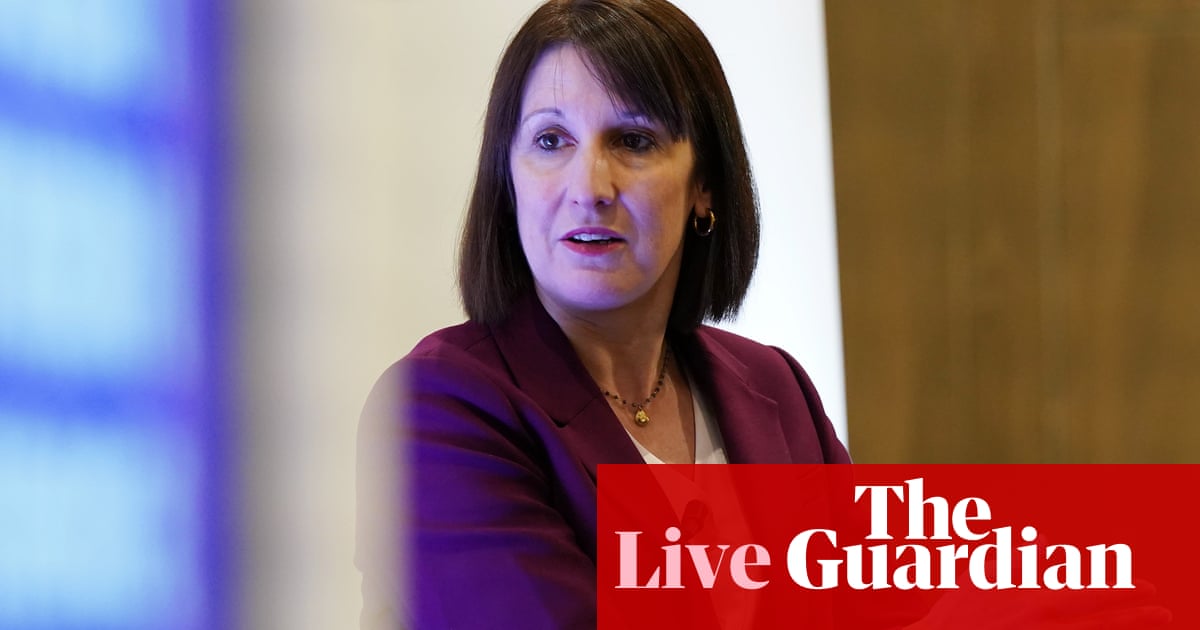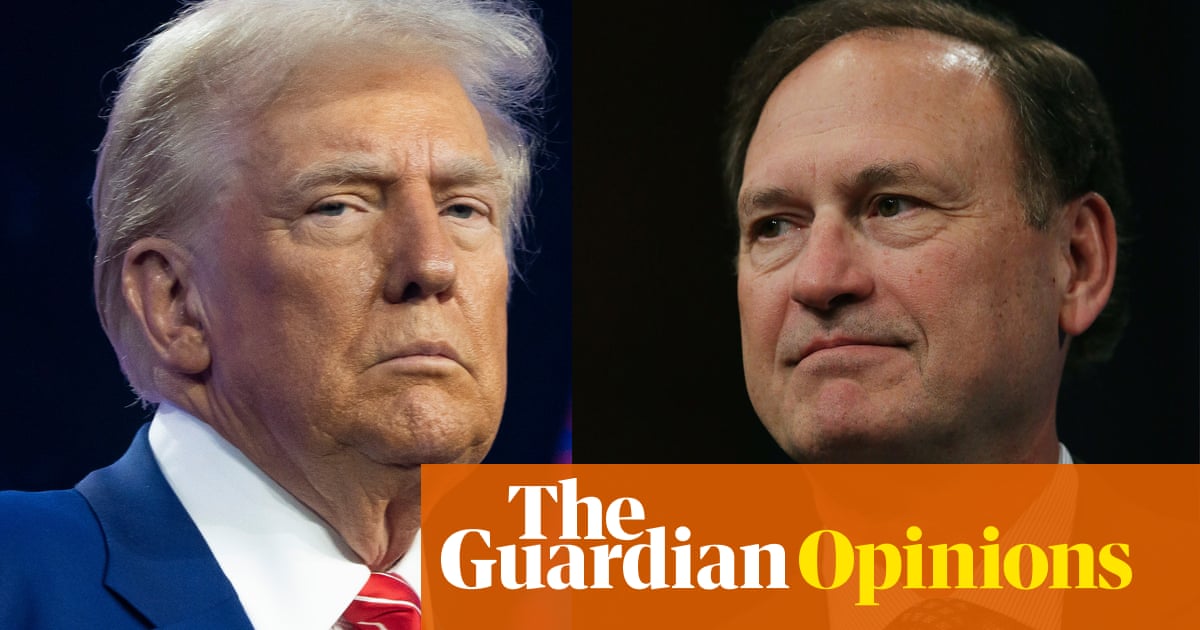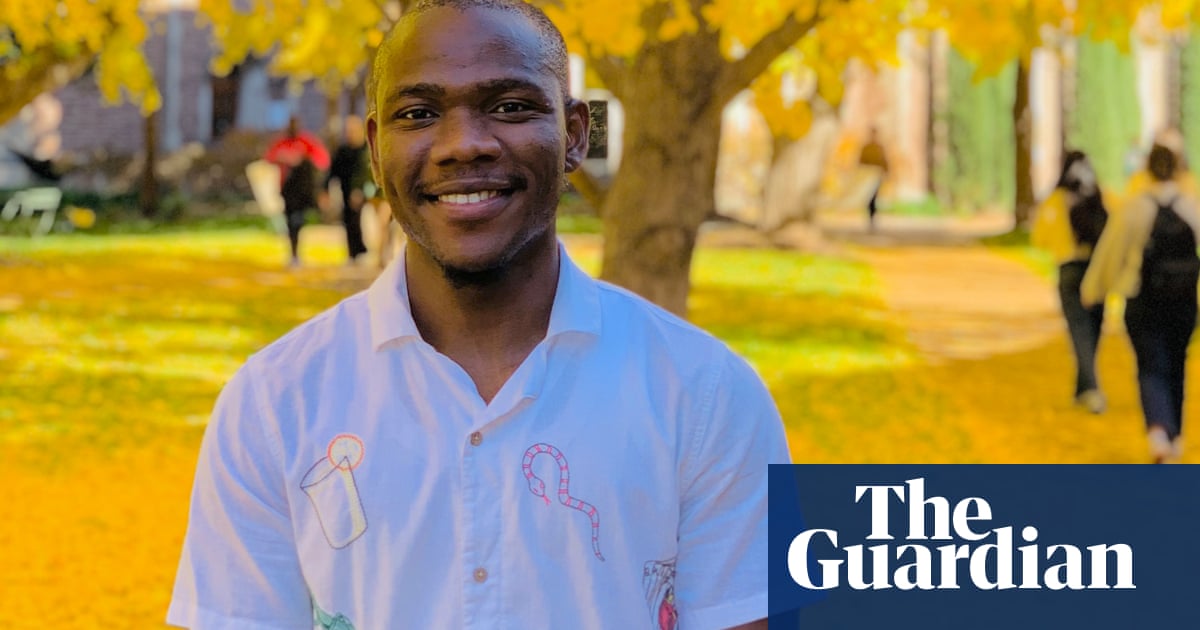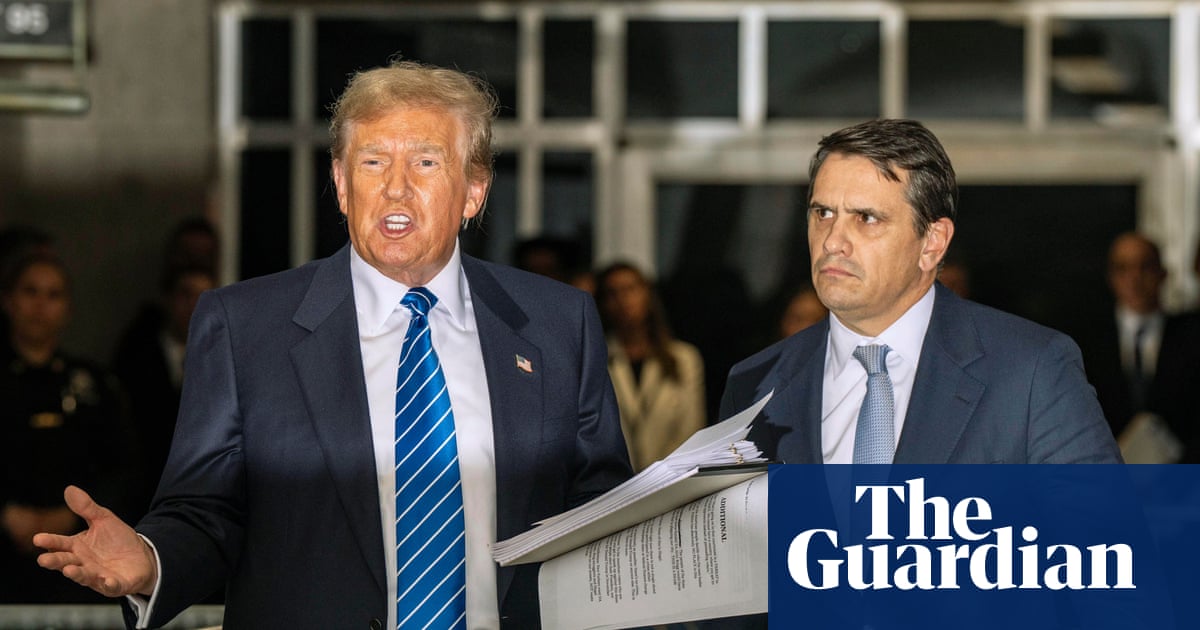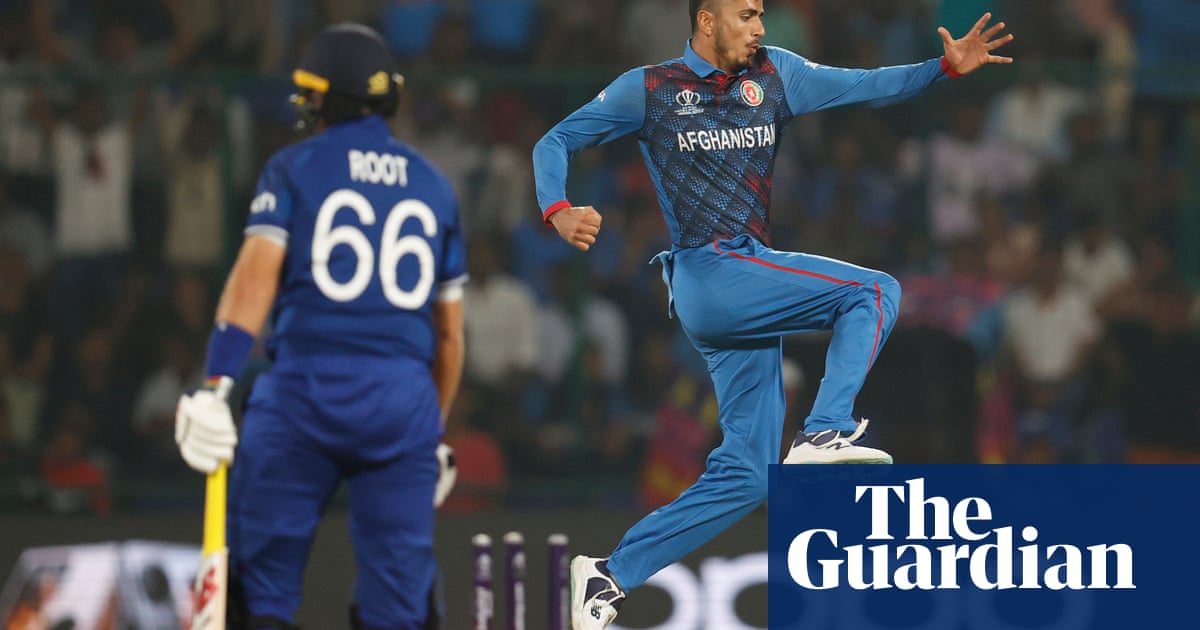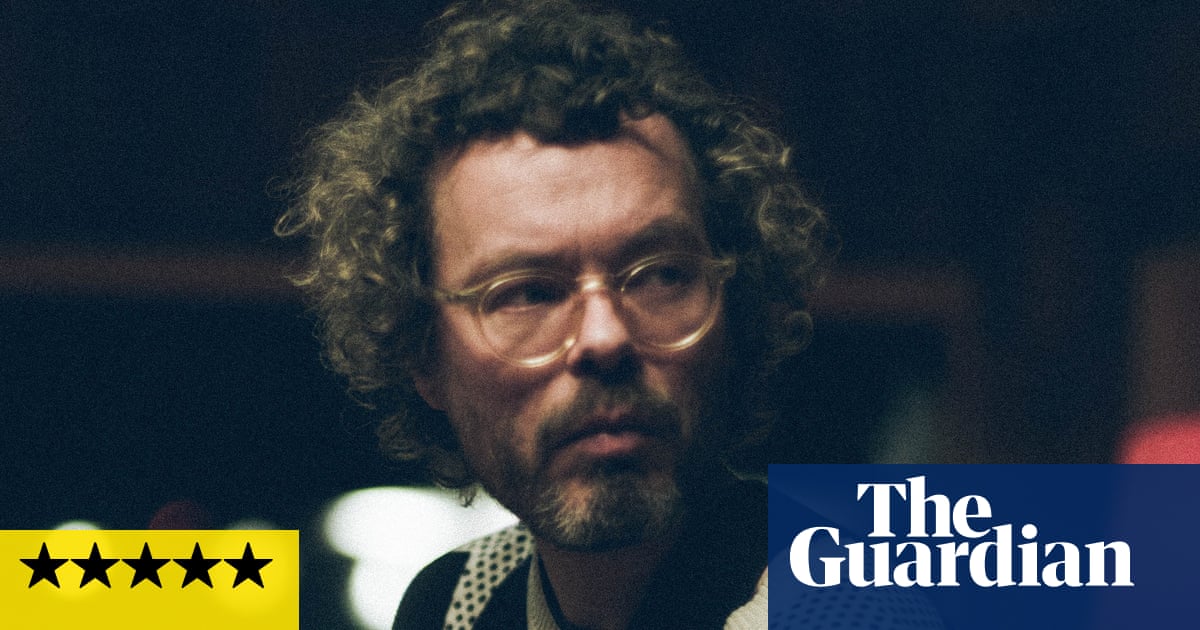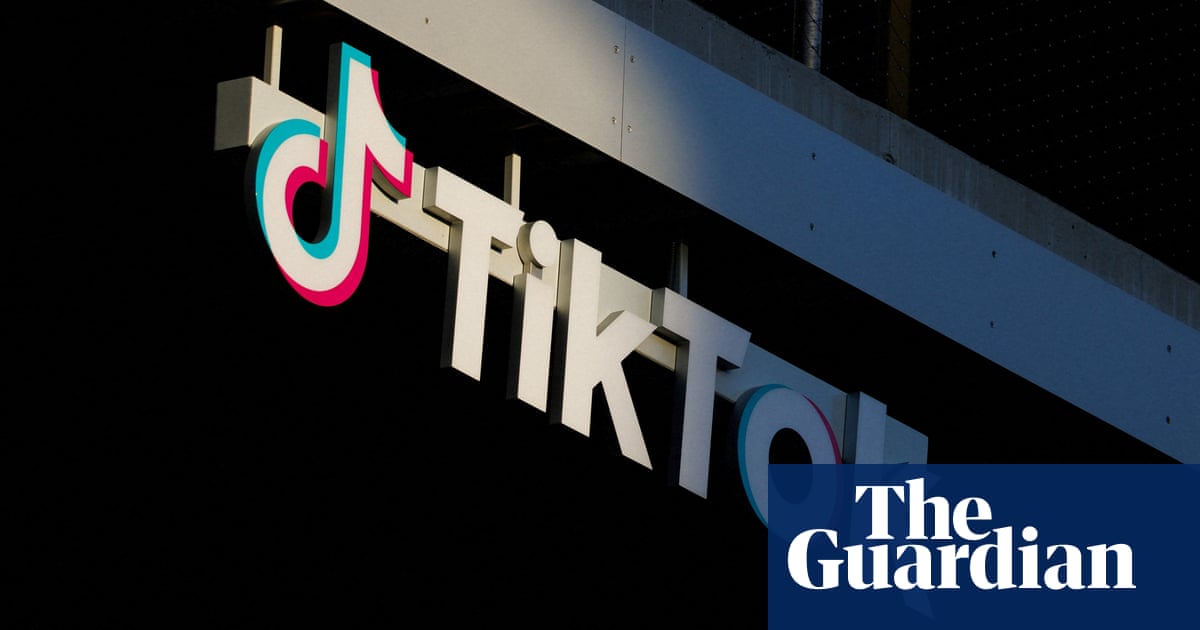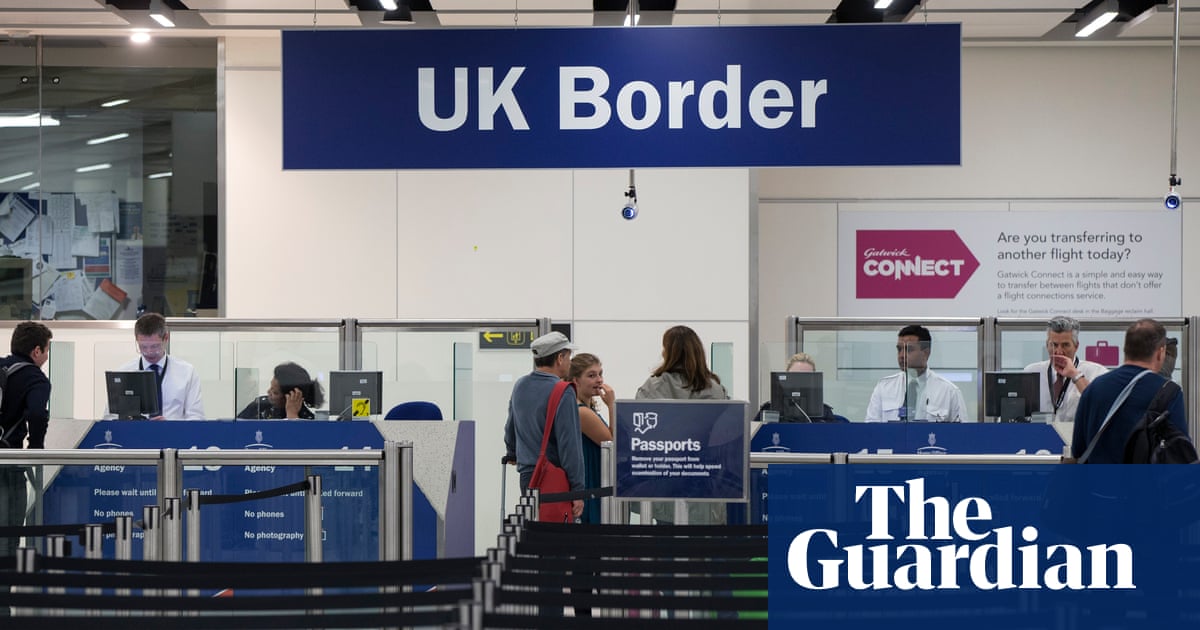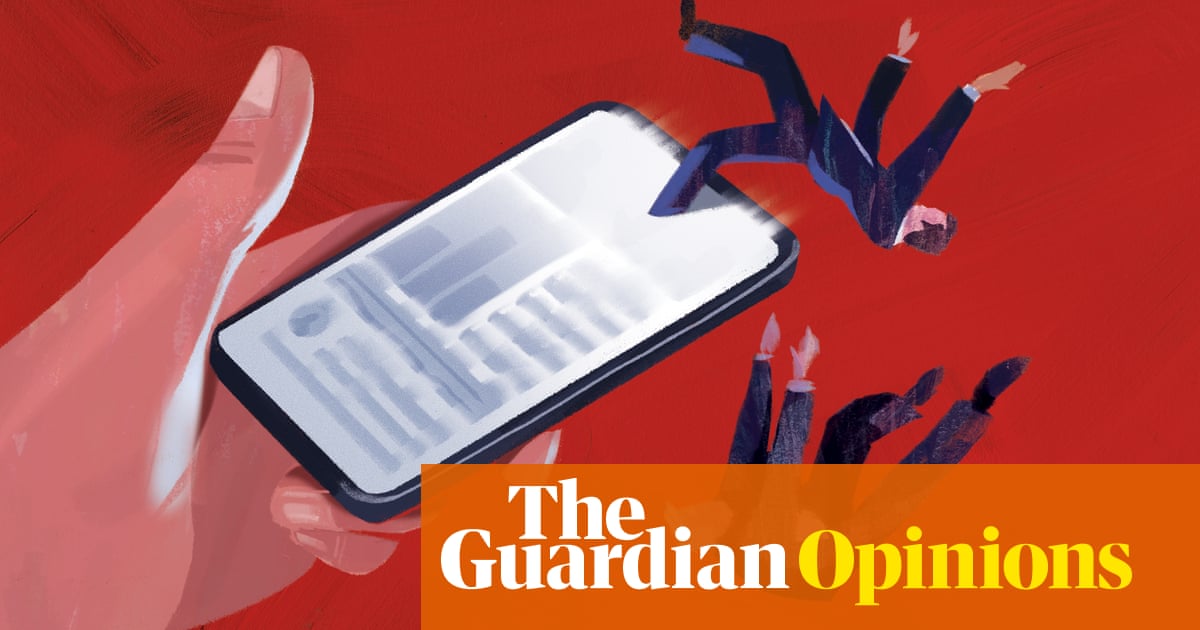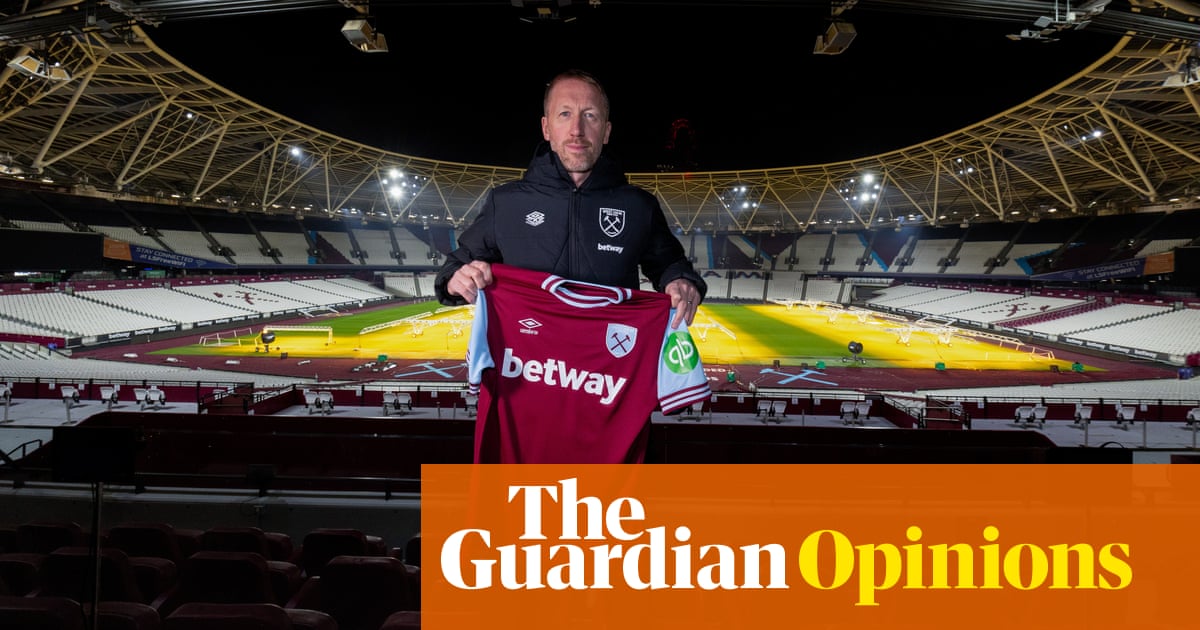
Damian Carrington
As well as hard coverage of the talks, throughout the day our correspondents will be filing lines on some of the experiences that offer some sense of the vibe in Baku. Here is the first, from Damian Carrington:
Azerbaijan Airlines had been given the Cop29 script, with passengers from London to Baku warmly greeted and promised as “inspirational meeting of minds”. We’ll see.
The Cop29 branding is an appealing shade of teal and has some intriguing logos. One shows a factory with a chimney emitting a leaf, while another has a plant which is flowering an electric plug. The industry that underpins the entire Aezrbaijan economy – oil and gas – is understandably absent.
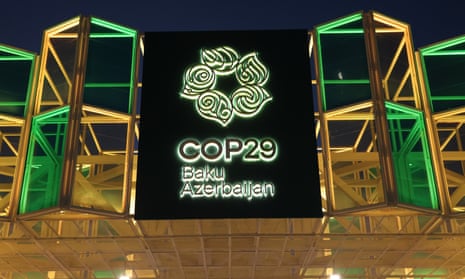
Every great arena of international diplomacy comes complete with its own dictionary of jargon, and Cop – being about a particularly complicated and somewhat scientific problem – are in no way an exception. Thankfully, the Reuters news agency has provided a glossary of terms. Here are some you will see peppered throughout our coverage in the coming fortnight.
UNFCCC: This acronym stands for the United Nations Framework Convention on Climate Change, which is the name of both the 1992 treaty committing nearly 200 countries to fighting global warming and the secretariat set up to implement that treaty.
COP: This acronym stands for Conference of Parties, and describes the annual summit of countries that have signed the UNFCCC treaty. This year’s COP29 meeting in Baku marks the 29th such gathering since the UNFCCC took effect in 1994.
NCQG: This relatively new acronym will be focal at COP29. It stands for the New Collective Quantified Goal on Climate Finance, an annual target for funding developing country climate efforts.
NDC: Most often, these NDCs or Nationally Determined Contributions are referred to simply as “country pledges” and describe national action plans for reducing its emissions and adapting to climate impacts. The next round of NDCs are due in February, though some countries plan to submit new plans in Baku.
GLOBAL WARMING: The term describes the gradual increase in the global average temperature.
CLIMATE CHANGE: While this term is often used interchangeably with “global warming,” it means something different. Climate change describes global warming as well as its consequences, such as extreme weather events. (At the Guardian, we will often use the terms CLIMATE BREAKDOWN or CLIMATE CRISIS to better convey the gravity of the situation.)
GREENHOUSE GASES: These gases, sometimes referred to simply as GHGs, are able to trap solar heat in the atmosphere and cause global warming. The most powerful GHGs are methane (CH4) and carbon dioxide (CO2), which are also referred to as “carbon emissions” because both molecules contain carbon. The world’s excess carbon emissions come mostly from the burning of fossil fuels and other industrial activities.
PARIS AGREEMENT: Under this 2015 treaty from the COP21 talks in Paris, countries agreed to try to limit global warming to “well below” 2 degrees Celsius (3.6F) above the pre-industrial average, with a goal of holding it to 1.5C (2.7F). The Paris pact also calls for national emissions-cutting pledges to be updated every five years
NET ZERO: This term does not mean releasing zero emissions, but rather releasing no more than the amount being recaptured by CO2 abatement technologies, tree planting, or other means. Reaching “net zero” would mean atmospheric GHG concentrations stop increasing.
LOSS AND DAMAGE: Governments last year pledged $800 million toward a new ‘loss and damage’ fund to help poorer nations being hit by climate-fueled disasters. The fund, which now has a director and a host nation, will now be deciding how the funds should be dispersed and calling for more contributions at COP29.
CARBON OFFSET: Also known as a “carbon credit,” these instruments allow a country or company to compensate for some of their carbon emissions by investing in projects to bring emissions down elsewhere.
ARTICLE 6: This term refers to a provision in the Paris Agreement on carbon offsets, and is used as shorthand for UNFCCC efforts to regulate international trading in carbon credits. Governments are hoping to resolve rules for trading carbon offsets at COP29 to allow for these markets to become operational.
Here are some pictures of how things are looking in Baku, the Azerbaijani capital, which has been set up in full summit mode.
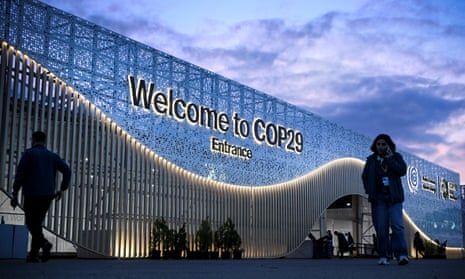
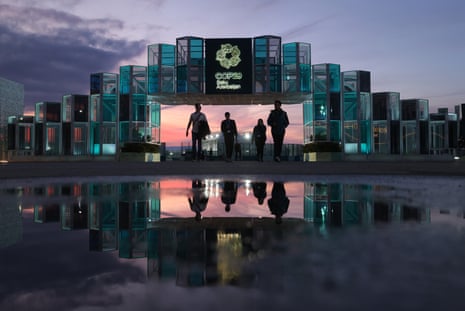
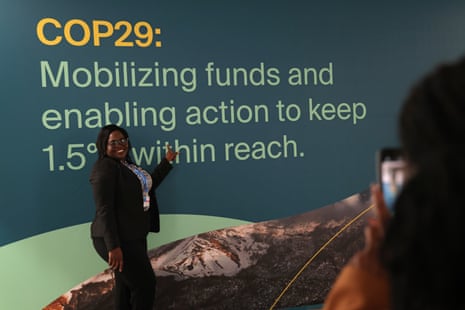

Ajit Niranjan
WHAT IS COP29 IN AZERBAIJAN AND DOES IT MATTER?
The 29th United Nations climate conference has begun, with diplomats descending on Baku, Azerbaijan, to thrash out arguments over planet-heating pollutants and the money needed to deal with them.
Like the 28 “conferences of the parties” that came before, Cop29 is not expected to stop the climate from changing - but delegates say that’s no reason to dismiss it as hot air. Cops are the key diplomatic arenas in which poor countries that have done little to heat the planet can put pressure on rich countries that hooked the world on fossil fuels. In turn, rich countries with the resources to transition quickly can encourage poor countries to clean up faster and sooner.
WHAT WILL BE THE OUTCOME OF COP29?
This year’s meeting will revolve around efforts to stump up the funds needed to cut pollution and adapt to more violent weather. Rich countries missed a goal to get poor countries $100 billion a year in climate finance from 2020, a target set in a previous Cop that experts deemed weak and patchy. Poor countries are now pushing for $1tr a year by 2030 - including cash to fix the destruction caused by extreme weather - but rich countries are reluctant to go higher unless the pool of contributors grows larger.
If diplomats reach a good deal on money this month, it could build trust and spark greater ambition when countries submit sorely-needed action plans to cut pollution at Cop30 in Brazil next year.
WILL COP29 SUCCEED?
More than 32,000 participants have registered for the conference but observers are not expecting them to deliver transformational change. Several prominent world leaders are skipping the summit and sending deputies instead - including the EU’s Ursula von der Leyen, the US’s Joe Biden, China’s Xi Jinping and Germany’s Olaf Scholz. The US just elected Donald Trump as president, who took the country out of the Paris climate agreement when he last sat in the White House. Papua New Guinea has pulled its ministers out of this year’s Cop altogether in protest at the failure of rich countries to live up to their promises.
And beneath the high-level geopolitics, observers have also questioned whether the host is up to the task of shepherding overworked diplomats to find common ground. Azerbaijan, a middle-income country in central Asia that is rich in oil but poor in water, is well-poised to bridge the divide between the different interest groups. But a secret recording last week appeared to show the Cop29 CEO agreeing to facilitate fossil fuel deals.
The hope is that the conference can really bring countries together, and continue to push progress on reducing the world’s CO2 emissions.
Good morning, this is Damien Gayle, your online guide to Cop29 …
The 29th Conference of the Parties is beginning in Baku, Azerbaijan, this morning and, as we do every year, the Guardian environment desk will be blogging every cough and spit by the thousands of delegates, campaigners, lobbyists and others who have travelled to visit the climate talks.
Our team of reporters has already travelled to Baku, and I will be anchoring coverage from London, weaving together their contributions while scanning social media and wires news feeds to achieve as close to total coverage as is possible for one man and a blog.
If you have any comments or suggestions on things we could be covering, or news to share, please don’t hesitate to drop me a line via email. My address is [email protected].

.png) 1 month ago
15
1 month ago
15
